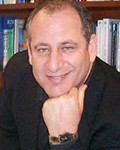Q. Is a negotiated settlement in Syria possible?
A. Yes, but only after shaping the battlefield and giving the combatants reason to negotiate. Under current conditions there is no prospect for a political dialogue. The U.S. can lead by working with friendly parties in Syria, namely the Syrian Kurds, and some of the moderate Syrian opposition.
Q. How successful have the U.S. and its allies been in creating a viable moderate opposition force?
A. It’s been a dismal failure. The political opposition spends its time in five star hotels and has little influence over fighters in the field. The U.S. has spent a lot of money trying to train the so-called moderate Syrian opposition, without any results. Our biggest shortcoming in Syria was the failure to recognize and then support—militarily and diplomatically— the People’s Protection Forces of the PYD [Syria’s Democratic Union Party, run by Syrian Kurds]. They are the only group that has shown any capability of confronting and defeating ISIS.
Q. Wouldn’t the Turkish government have a problem with such a plan? They have been working to suppress Kurdish opposition next door for years.
A. The U.S. shouldn’t give Turkey a veto over its policies in the region. Beginning in 2012, Turkey was collaborating with jihadi groups including ISIS. Only recently did Turkey declare its willingness to work with NATO and the multinational coalition. Ankara finally agreed to let the coalition use the Incirlik Air Base near the Syrian border. Turns out that Turkey was really interested in joining the counterterrorism campaign so it could attack the PKK [a Kurdish militant group that has been struggling for greater political and cultural rights over 30 years.] There’s not much difference between Turkey’s AKP government and the ideology of ISIS. When Turkey’s deputy prime minister says that women shouldn’t smile or laugh in public because it’s wrong to attract attention to themselves, you expect that coming from Baghdadi [the self-declared caliph of the Islamic State].
Q. How seriously are U.S. policymakers taking the Kurds and this possibility?
A. There was a report earlier this week that we were going to be giving them ammunition and maybe weapons so they could establish a buffer across the Syrian border with Turkey. U.S. assistance will be measured by its actions, not its words.
